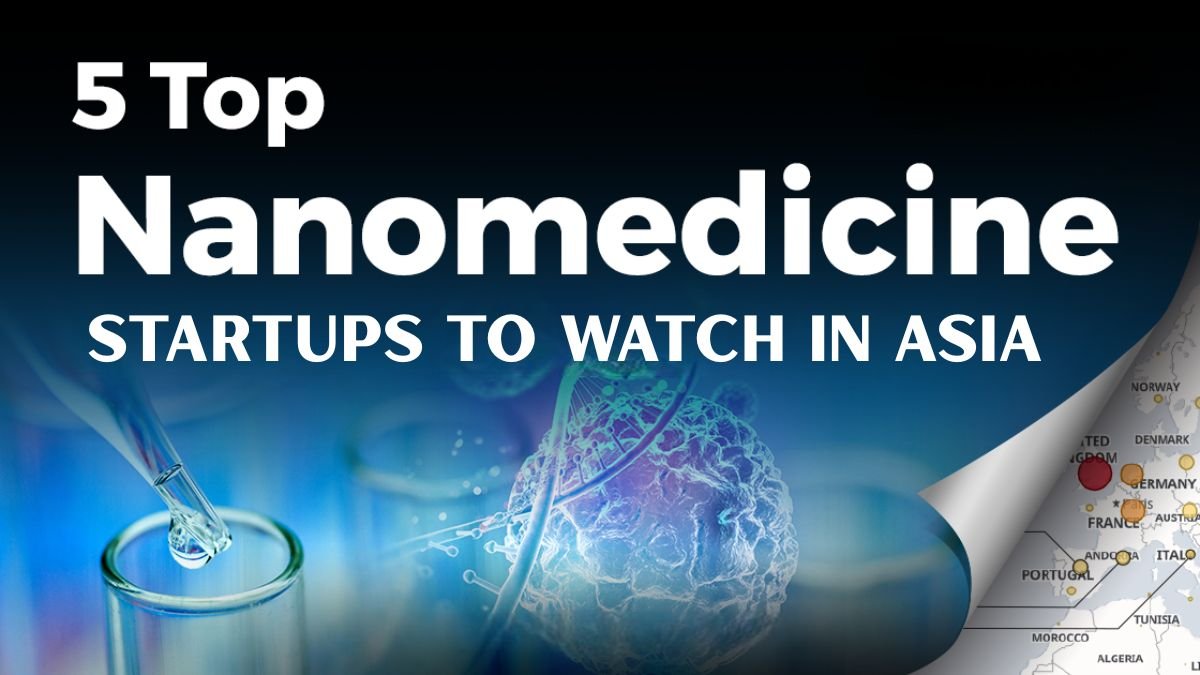Nanomedicine is no longer just a laboratory experiment. It has become a turning point in medical science worldwide. Significantly, Asia is emerging as a major hub for this transformation. Companies here are developing technologies that target diseases at the root. Many startups are working on drugs, devices, and treatments that could break the boundaries of the current medical model.
Government support for biotech research in Asia, rapidly increasing investment, and a skilled scientific workforce are further accelerating the sector’s growth. Consequently, many Asian startups are gaining attention on the global stage.
In this article, we will explore five such startups whose technologies could significantly transform the medical field in the coming years.
1. Suzhou Ribo Life Science (China)
Suzhou Ribo Life Science is a leading startup in China working on RNAi-based medicines. RNA interference, or RNAi, is a technology that “silences” disease-causing genes. Simply put, this technology blocks the gene signals that cause disease progression.
The company’s core technology and its strengths
Its RNAi technology is highly precise. It blocks only the genes that are causing damage. This allows the drug to work without affecting the rest of the body.
It provides a more precise and targeted treatment than traditional drugs.
Key areas of research and development
The company’s primary focus is on serious and complex diseases:
- Cancer
- Hepatitis B
- Liver fibrosis
- HIV
Treatment for these diseases is often long and difficult. RNA-based therapies are bringing new hope to these treatments. Suzhou Ribo Life Science is making significant contributions in this direction.
2. OliX Pharmaceuticals (South Korea)
This startup is known for its RNAi therapies. It is researching eye, skin, and lung diseases. OliX’s unique strength is its unique asymmetric siRNA technology.
Why is this technology special?
Asymmetric siRNA technology provides better control of drug delivery within the body. This allows the drug to reach its target site more easily and maintain its effectiveness for a longer period of time. This technology also helps reduce side effects.
Pipeline and Future Prospects
The company is working on treatments for various diseases:
- Skin scarring
- Lung fibrosis
- Retinal fibrosis
- Cosmetic treatments such as skin whitening and anti-aging
Its cosmetic applications are also rapidly growing, making it a strong player in both the medical and beauty industries.
3. LUCA Science (Japan)
LUCA Science’s work is quite different and unique from other startups. It is developing mitochondria-based treatments. Mitochondria are considered the energy hubs of cells. If they malfunction, many serious diseases develop.
The Company’s Scientific Achievements
LUCA Science has developed a technology that allows functional mitochondria to be isolated. They are then engineered and delivered to tissues in the body where cells are weakened or damaged.
This technology offers a solution that conventional treatments still cannot provide.
What types of diseases can it help?
The company is working on several serious disease areas:
- Immune system disorders
- Lung diseases
- Neurological disorders (CNS disorders)
- Organ repair and regeneration
This technology could play a major role in the future treatment of diseases that are currently incurable with conventional medications.
4. SEPPURE (Singapore)
SEPPURE doesn’t manufacture medical drugs, but its technology is crucial for the pharmaceutical industry.
It produces nanofiltration membranes that separate chemicals without heating. In traditional industry, this process relies on heat, which consumes considerable energy.
The Importance of the Technology
SEPPURE’s membranes separate chemical mixtures with very little energy. This results in the following benefits in drug manufacturing:
- Resource savings
- Higher purity
- Lower costs
- Reduced pollution
Where this technology is used:
- Drug production
- High-purity chemicals
- Industrial processing
- Clean manufacturing
It makes the pharmaceutical industry more sustainable and environmentally friendly, which will be a major necessity in the future.
5. SN BioScience (South Korea)
SN BioScience is working on nanoparticle-based drug delivery in cancer treatment. Cancer drugs often face difficulties in dissolving and working effectively in the body. This is why this startup is attracting significant attention in the industry.
What is Double Core Shell Technology?
The company’s double core shell micelle technology safely packages the drug. This allows the drug to:
- Travel easily within the body.
- Reach the target location precisely.
- Cause fewer side effects
This is extremely important in complex diseases like cancer.
The company’s key focus areas:
SN BioScience is working on drugs that:
- Make poorly soluble drugs more effective.
- Have a better effect on cancer cells
- Deliver prodrugs like IRINOTECAN more safely.
Such technologies can significantly simplify cancer treatment in the future.
The Future of Nanomedicine Across Asia
The research from these startups clearly shows that Asia is becoming not just a consumer but a major hub for global innovation.
From RNA-based drugs to mitochondrial therapy, nanofiltration, and advanced drug delivery systems, the scope of each technology is immense. In the coming years:
- Gene-based therapies will accelerate
- New solutions for cancer and rare diseases will emerge.
- Drug manufacturing will become more environmentally friendly.
- Repair at the cellular level will become possible.
The contributions of these five companies are considered crucial to this transformation.
Conclusion
If you are interested in biotech, investment, medical research, or the startup ecosystem, you should definitely follow these five nanomedicine startups.
Their technologies could form the basis of future modern medicine.
